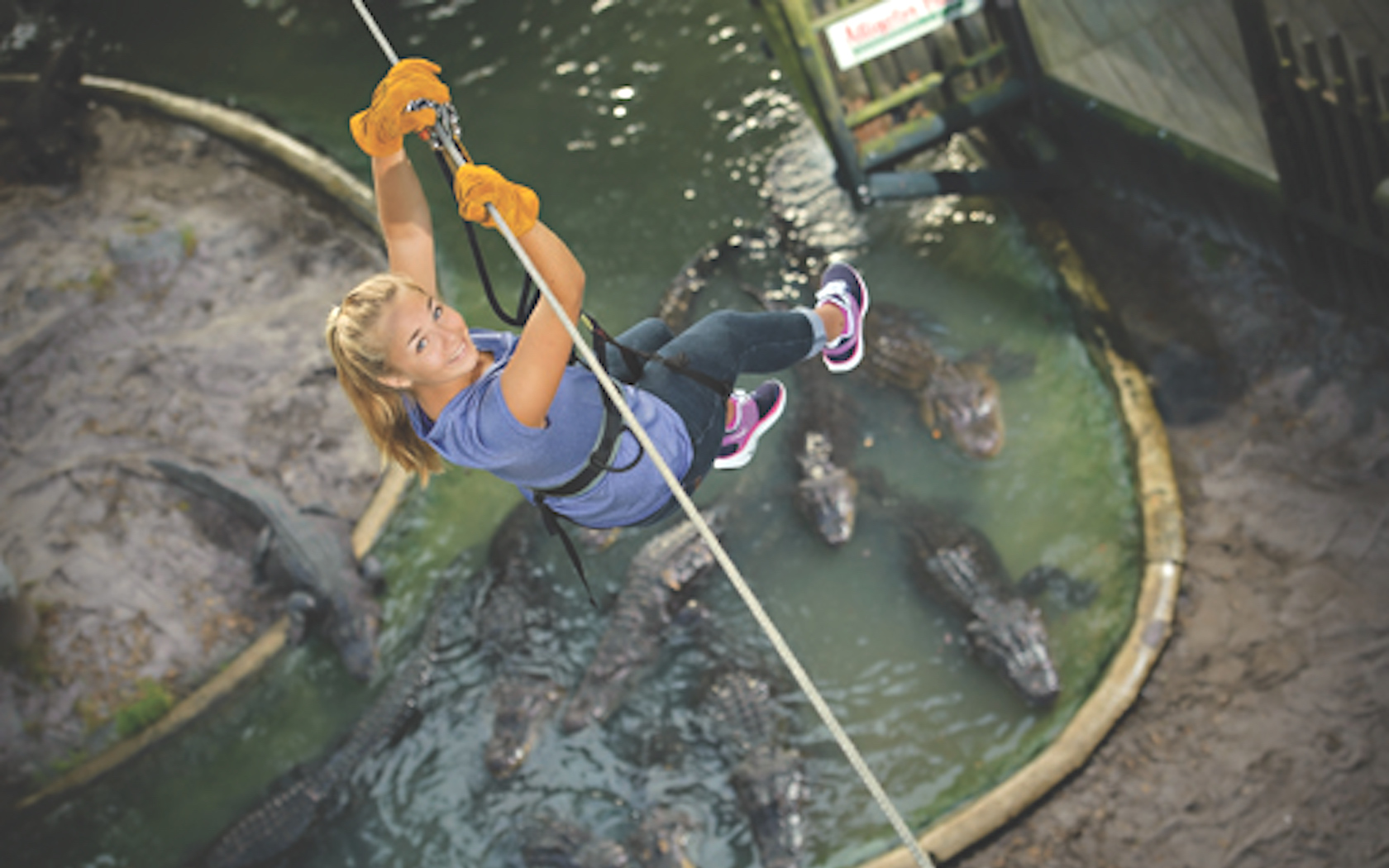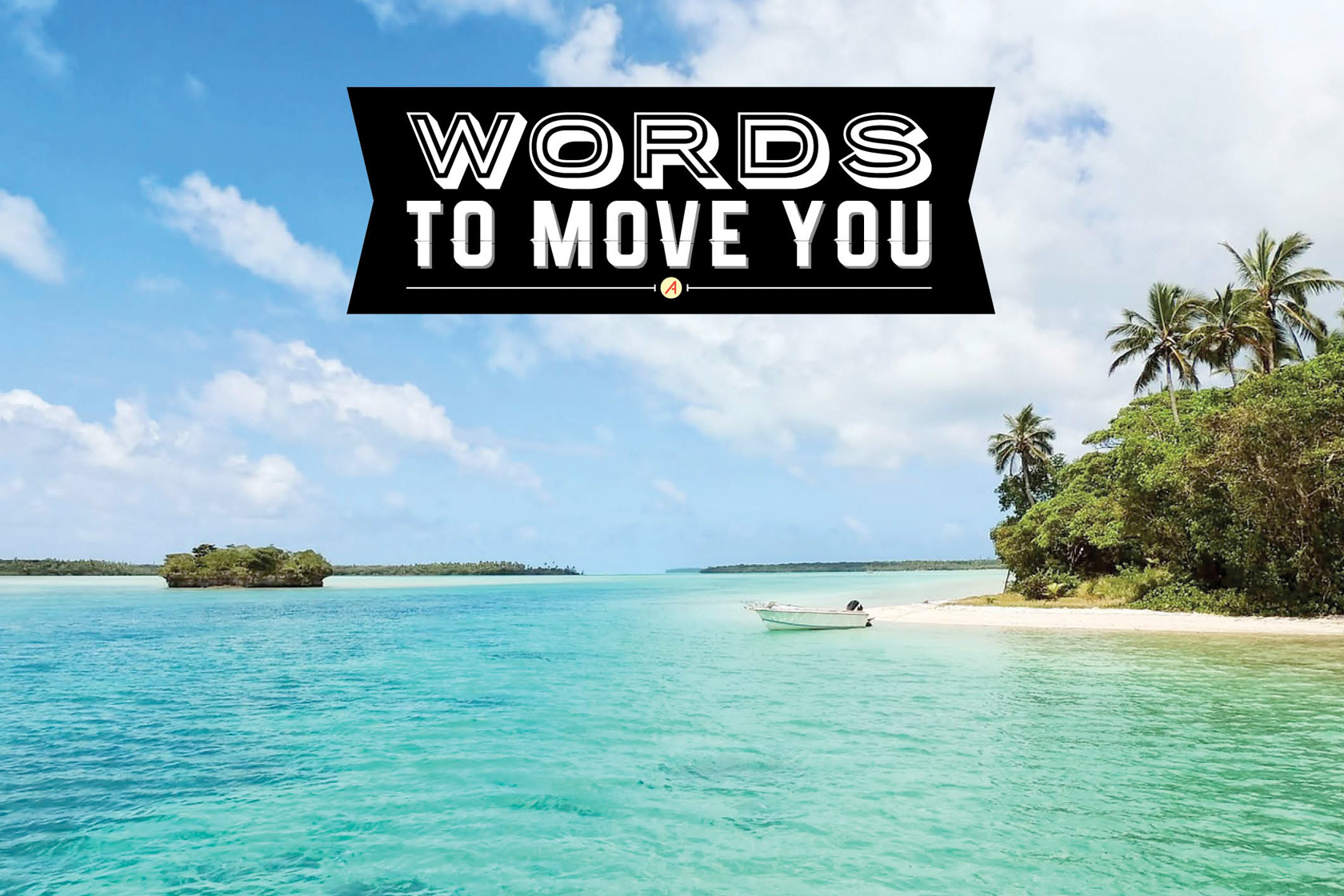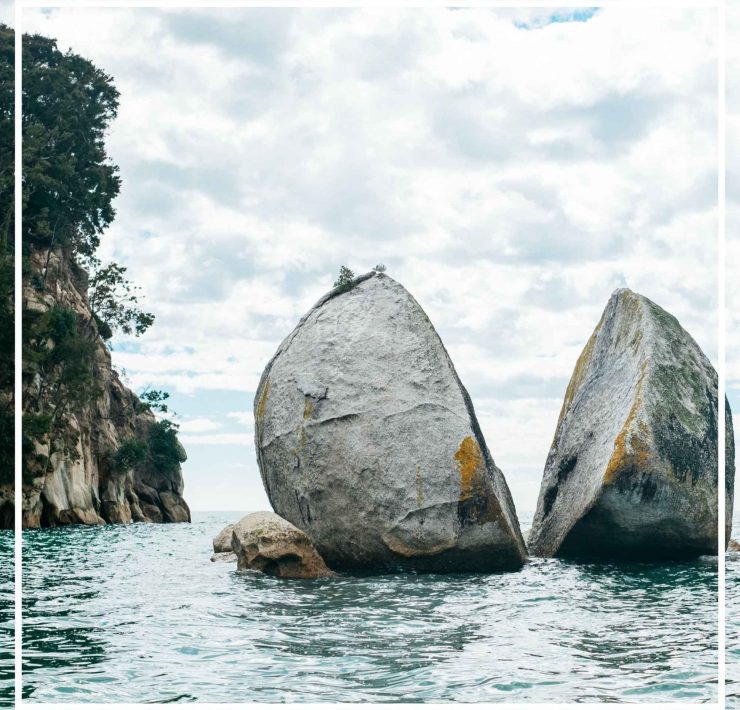Adventurer Sarah Marquis On Hiking, The Nullarbor & Womanhood
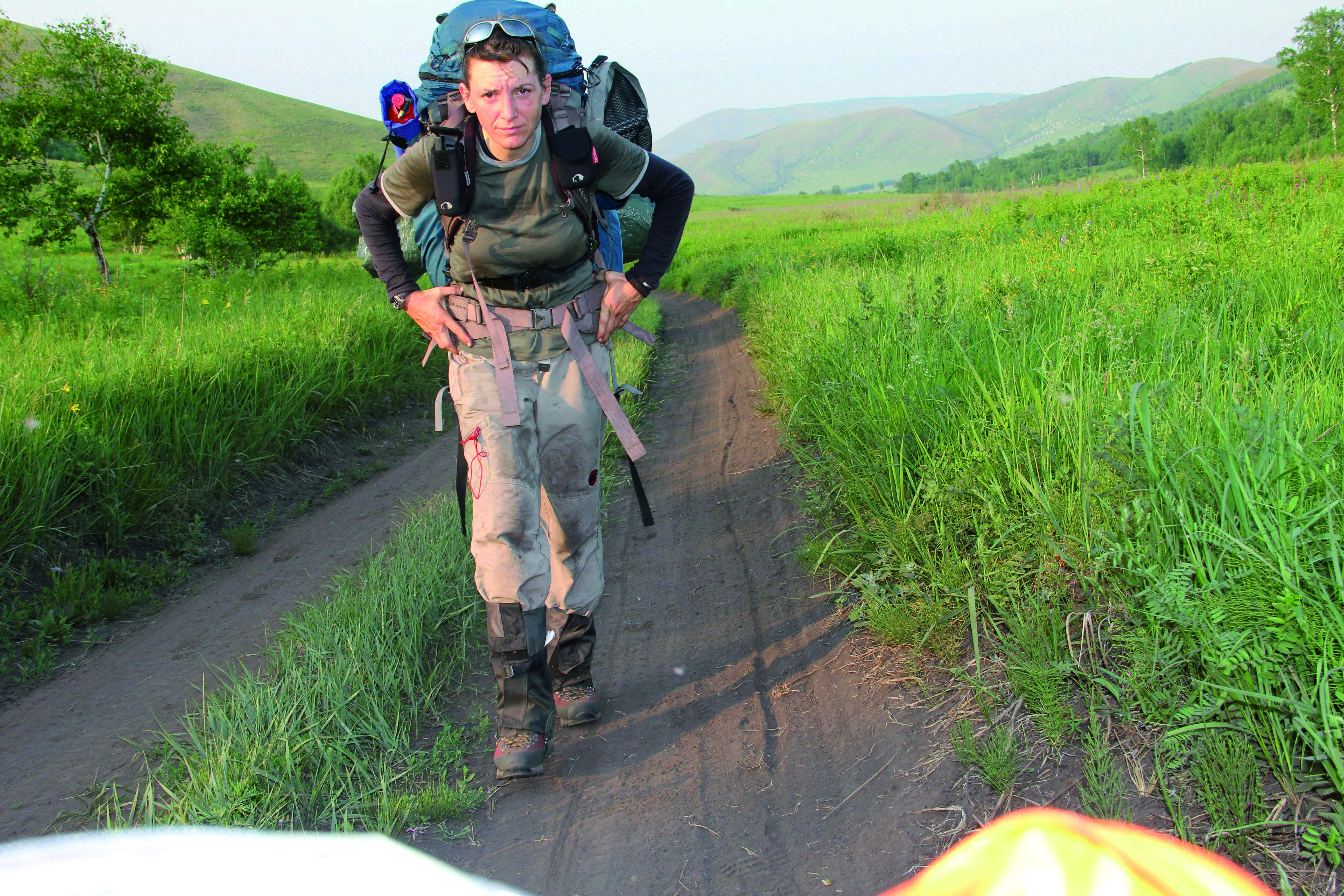
Matilda is a British-Australian-French freelance writer. She has flat-packed IKEA…
She’s survived being surrounded by a pack of wolves, followed for weeks on end by Mongolian thieves and the Mafia, a life-threatening abscess and the delirium of dengue fever – and that’s just on one journey. Wild By Nature is Sarah Marquis‘ remarkable new book on her journey on foot, alone, from Siberia to Australia: across the Gobi desert, through the Laotian jungle, on a cargo ship from Thailand to Australia and finally through the Nullarbor Plain where, after three years, her journey ended at her favourite tree in Australia.
More than just a story of hiking, Wild By Nature tells of human persistence, adventure, freedom and a search for identity that can only come from spending three years entirely alone. MATILDA EDWARDS caught up with Sarah to chat about her 23-year adventuring career, her unique connections to Australia and how this journey heightened her sense of womanhood.
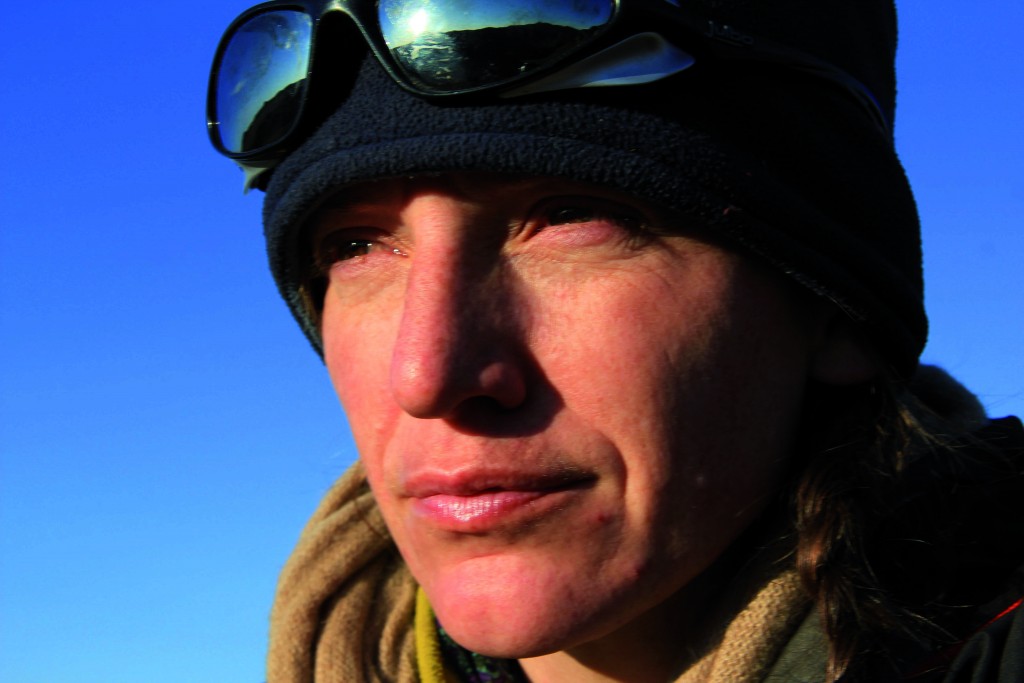
Hey Sarah, how are you?
I’m good, I’m in Noosa!
Amazing, what a stunning place. Are you just there for leisure?
I just finished the Australian promo tour for my book there yesterday, and I did some morning shows in Brisbane and I said, “well that’s great, but I think I know a place a little more suitable for me!” so here I am. It’s raining a little but it’s still sunny, and there are places I can train here, too – because I haven’t been able to move my body properly for quite some time, so I’ve been training. There’s a beautiful national park here, so you can run through it, jump in the sea, do yoga, all of that. It’s perfect. Where are you located?
I’m down in Melbourne.
Ohhh, has it been stinking hot down there?
It’s actually pretty mild today, but I just came home late last night from a hike of my own actually, through Tasmania so I haven’t been outside yet.
Oh, wow – Tasmania! Where in Tasmania have you been?
I did the three-day Freycinet Peninsula hike on the east coast.
Ooh, how was it? It must have been pretty muddy?
Um, very difficult to say the least. Amazing fun, but super tough. Very muddy, very wet, but such an achievement.
You’ve got the best of every world there in Tasmania, though – it’s so wild. I’ve been there, but not that much – I’m definitely going to go back there for a walk. I love those really deep, old forests, they’re so beautiful and wild and the ground is just so beautifully composed. Do you know what, though, I was so devastated to hear the story of the guy who’s been fighting for the forests there for many years, and then gets arrested?
Oh, that’s right – Bob Brown, the ex-politician.
Seriously – how can you do this? It’s mad, it’s just unreal. It’s just so not right, in so many ways.
Absolutely, particularly in a place like Tasmania, it’s pretty awful stuff. Anyway, I was actually reading your book on my hike; it was pretty inspiring to read when I’d be sitting on a rock thinking “I just can’t walk any more!” – but then I’d be like “Hey, look at what she’s done, yes I can!”
Oh, you liked it? That’s awesome, thank you so much. You know what they say, though, is that when shit happens, that’s when it actually starts. If things go smoothly and nicely, well…it’s not supposed to be that way, is it?
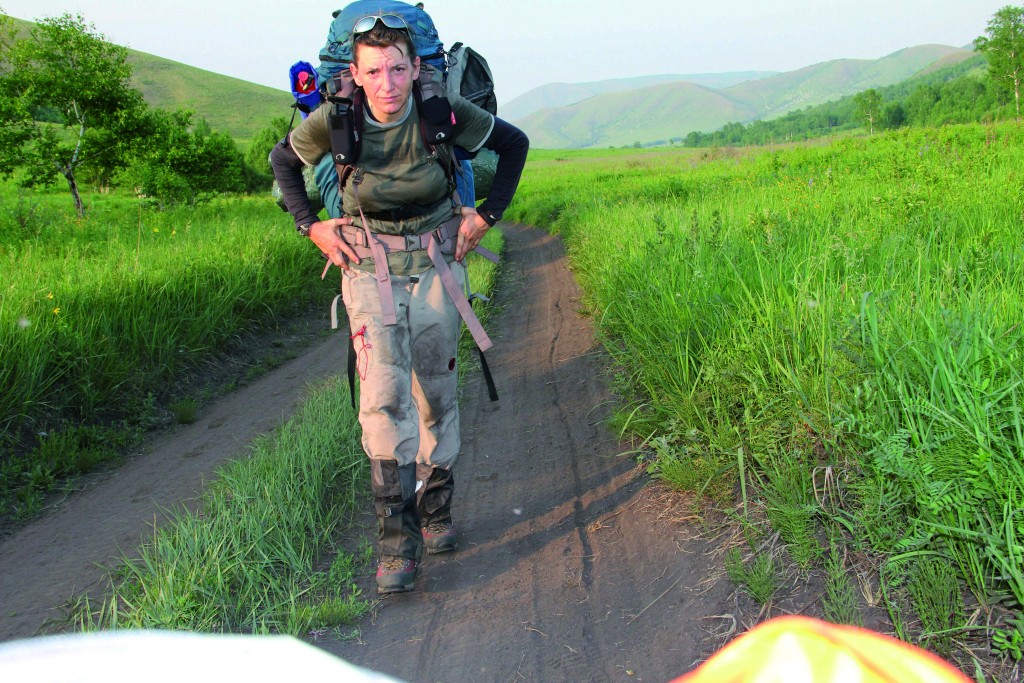
I guess condensing three years down into a book like that must be quite a tricky process….
It’s been a really tricky process, because I could actually have written a book per country, really. It has been a little frustrating, to have to put only certain stories on every country, but at the same time you do have to be realistic and try to put the highlights in. For me, what was really important – my only real goal – was when you put the book down, to feel like you’ve been walking with me. I wanted people to understand everything about walking so I hope I’ve done something towards that.
You absolutely have, it was pretty nail-biting at times, I was terrified.
I had a lady from the States send me an email, actually, and she said “Oh my god, I’ve been reading your book on my couch, I just sat there until 2am until I had finished it, and I was surprised I didn’t have holes in my shoes at the end of the night.”
That’s exactly what you want. So at the start of your book you talk about how much adjusting it took once you got back to Switzerland. I was wondering what you took out of your travels that have changed the way you live day-to-day the most?
Well, it’s a really tricky question because in three years I learnt so much both inside and outside of myself, so it’s really difficult to pinpoint what actually changed me. What I understand is that I get more comfortable with so many things in life; I put that stance into our everyday little hustle and bustle. Like, we think we have problems. We don’t have problems; it’s all a perspective of how you look at things. Problem is, when you’re not safe, you don’t have water, you don’t have food. After that? There is no real problem, you know? It just gave me a sense of perspective, and helped me understand people on the planet. By knowing myself that much, now I can totally look at people a different way – so it helped me to connect better with other people.
Once you went back to Switzerland and started living back in your westernised lifestyle again, what was the hardest thing to acclimatise back to?
Everything! Well, the thing is, when you’re out there, you just want to feel everything. It’s like peeling off a layer of skin: you get so raw, and that’s the only way to survive. You want to feel the wind, you want to smell the air to see if there’s anything coming towards you, you want to have this feeling of everything around you. When I come back, it’s pretty much the exact reverse. I can’t be this open sponge absorbing everything, every noise, everybody around me, so it’s the reverse – putting on another layer of skin to be able to not go crazy, essentially, and to live here again.
One factor in particular is the noise, for me. For months after I came back, I couldn’t go into a coffee shop with my friends. I can hear every part – the machine in the background, the chairs scraping, every tiny little noise – because I learnt to be able to hear so many noises both close up and far away, and when we live in busy places it’s not natural, so it took me about three months to really stay in public places. Even today, I’m still really looking for quiet spots – like now, where I am, I’m surrounded by bushes and trees and birds in the morning, and I love that. That’s naturally my way.
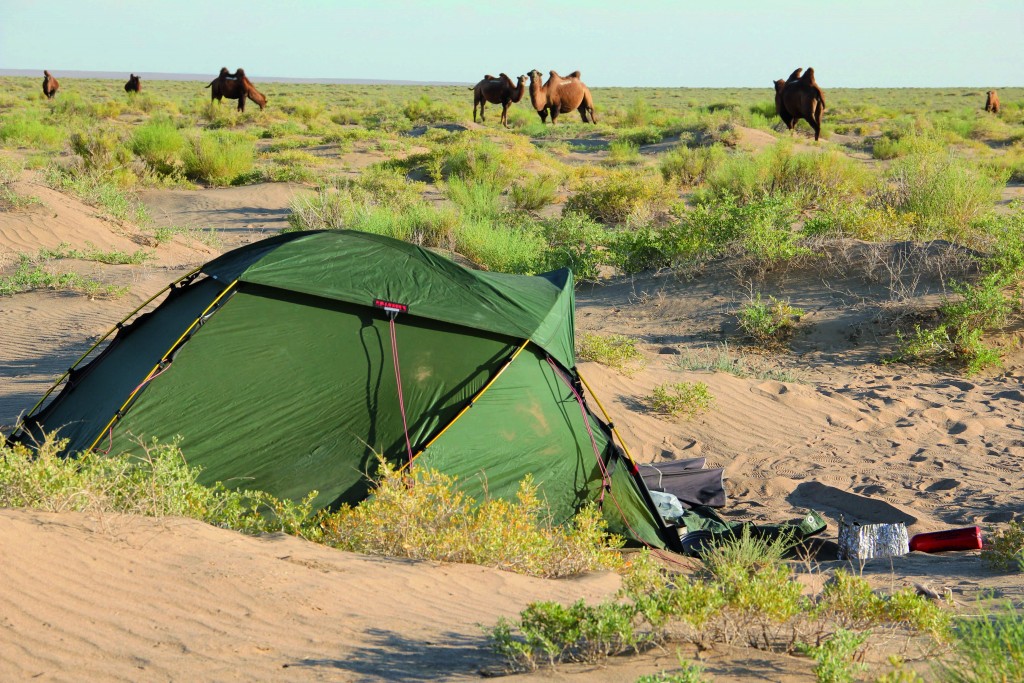
I’ve read quite a lot about people who do these huge walking expeditions and how when you get back it can be quite hard to readjust to first-world life, and it can bring up some mental health issues.
Well, it’s all about balance. I’ve been doing this for 23 years now – the first time I came back from a massive expedition in Australia was in 2002-2003, and I was just getting crazier and crazier. I live in the mountains in Switzerland in a little chalet. It’s quite an isolated place anyway, but I stayed in my little chalet for three or four months before I could even go out. I had this vision that when I went back home everything would be normal again; everything would be easy. And now I look at coming back home like another mini-expedition. I know the transition time is going to be difficult, and I’m ready for it. I’m not expecting easiness in my everyday life; I’m expecting an adjustment. And with that perspective in my head, it’s getting more possible. It’s all about how you can relate to where you are and being able to be happy anywhere. It’s not about my surroundings or where I am, or the walk, or the challenge, everything is in me – and that’s just what I’m made of.
I’d love to hear more about some of the amazing people you met along the way who you mention in the book – people who made a particularly lasting impact?
Yeah, it’s been fascinating for me. I have a lot of bad stories, you know – a lot of safety issues – but what really strikes me, in all those countries and through all those kilometres, was the link and the bond I found with women. That was fascinating. I’ve got this picture in my head right now: I’m in the Laos jungle, getting out of a little trail and finding a river; at this river are five or six women washing themselves and doing their laundry at the same time. So naturally, they just invited me to wash myself with them in the river – you know, we don’t speak the same language, there is no possible communication between us, but everywhere I went there was this connection between women that was just so normal for them. They’d take care of me, give me food, invite me to their clans – it was this incredible, fascinating unspoken link between them and me.
For me, I’d never felt that before, but it happened in Mongolia, in China – everywhere women were just taking me under their wing, because that’s what they do: they look after each other because it’s the only way to survive there. It’s the natural way to behave, and we seem to have gone so far from it in the West; we don’t have that connection anymore.
After seeing how women interact in these cultures, do you feel as though your sense of identity as a woman has become stronger?
Yeah, and I look differently at women – my way of acting with them are different. I understand now that we have to have each other; to recognise our bond with each other and see each other as sisters. We’re so much stronger together, and we would be so much more powerful together. For me to understand that was amazing, and those experiences with women around the world were a practical way to understand that. I really felt part of this worldwide sisterhood. It was incredible.
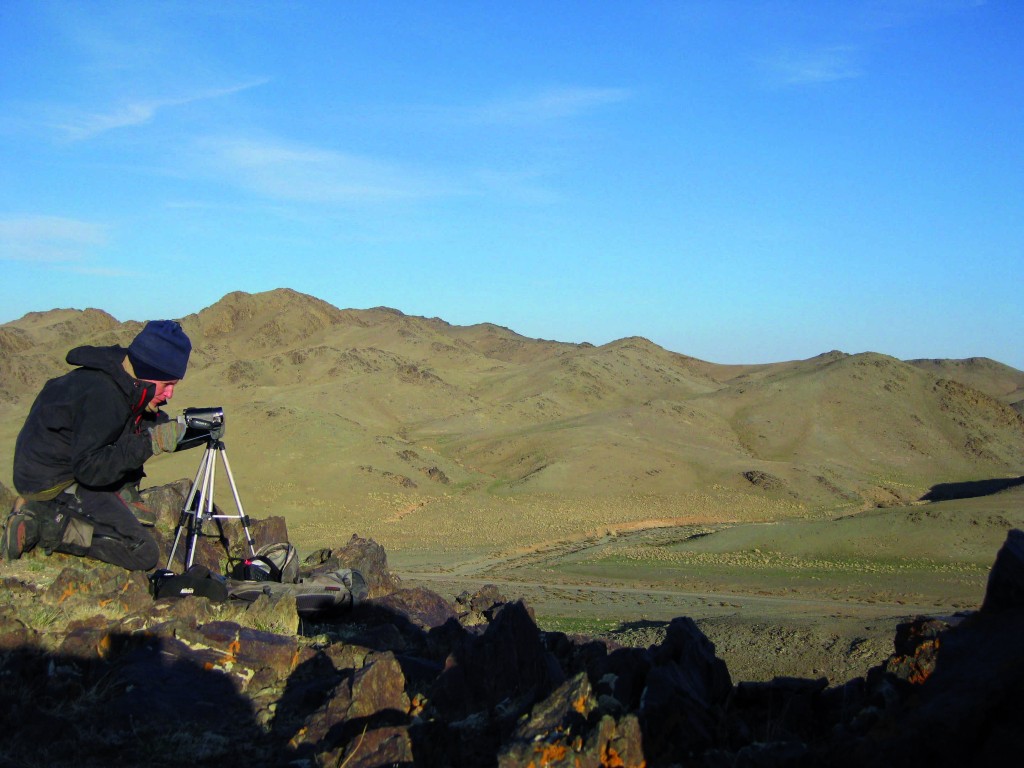
I guess your time was so full of crazy, exciting, scary experiences – could you whittle it down to one encounter that was the most testing for you?
Well, being in contact with humans from such different cultures was sometimes difficult, especially men at times – as much as I loved them! – so trying to be a female alone in some of these places was quite tricky. But experience-wise with nature, I’d have to choose the one where I woke up to five wolves howling right around my tent. You realise at that moment that you’re just part of everything; you’re there with them and you’re all the same – I guess we’re animals after all. It was weird, scary, inspiring, just…wow, really.
So you chose to finish your walk at a particular tree in the middle of the Nullarbor, what’s the significance for you there?
This tree is such a special, magical tree. The Nullarbor is just nothing – it’s an open, windy plain where the vegetation doesn’t grow very high, and you can just feel the harshness in the ground. Suddenly, there’s just this amazing tree in the middle of nowhere – it actually got shaped by the wind. It’s the most amazing shape, and it’s quite tall compared to the rest of the plants.
I slept under that tree years ago, when I walked across the Nullarbor Plain, and I sort of talked to the tree, I said “Darling, don’t worry – I’ll be back,” and when I planned this expedition I just knew that had to be the place. We had to get a helicopter over it to watch me finish the walk, and everyone told me I had to finish in a city or town so everyone could greet me, and because some media would want to come, but I just had to finish at the tree.
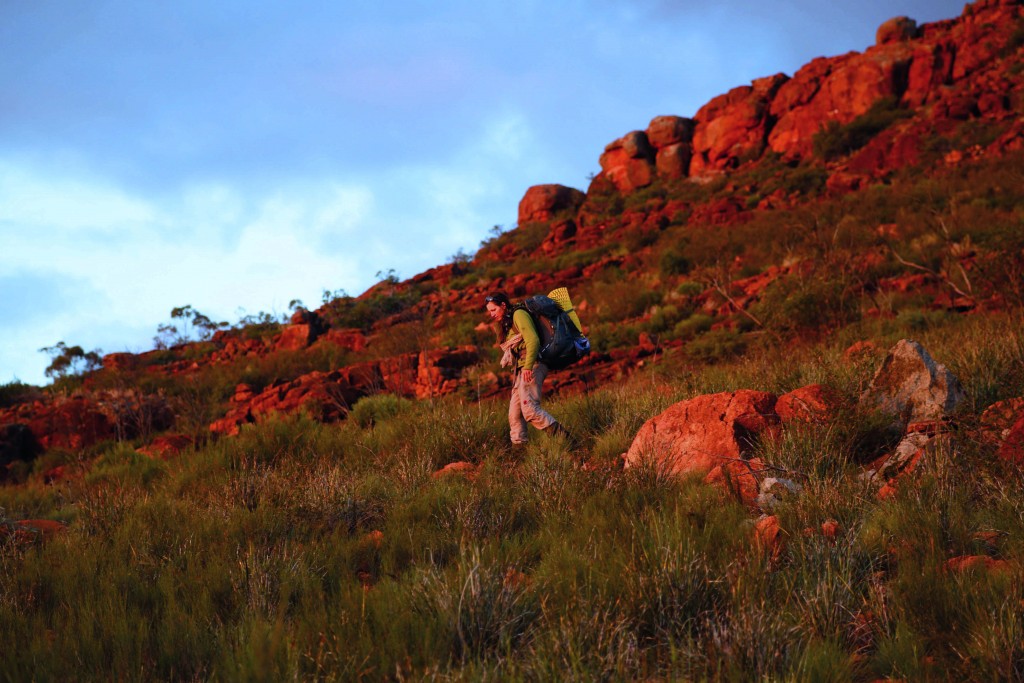
What’s next for you, after such a mammoth expedition? It’s been nearly three years since you finished this one.
Well, I’ve actually already done another one in between. I’d always wanted to experience the same lifestyle as the Aboriginal peoples who lived thousands of years ago. I’d been studying plants and bush tucker for many, many years, and after the three-year expedition I felt quite ready to undertake this massive challenge, and I created an expedition called ‘Dropped Into The Wild Corner’. In June last year, I got dropped from a helicopter in the mouth of the Berkeley River, which is up north-west in the Kimberley, and I survived for three months without taking any food, and reached the Punululu (Bungle Bungle) National Park.
I managed to do about 750 kilometres in full survival – crocodile country, snakes everywhere, I didn’t meet anyone for one and a half months, and I was starving. The animals and birds would come really close to me because they’d just never seen a human before, or I’d be fishing and I’d catch something but a crocodile would come and grab the fish before I had the chance to. I did it to become really instinctive and really use all my skills, you know? I definitely think if I hadn’t done the Siberia to Australia trip beforehand, though, I wouldn’t have been able to survive. It’s really been the achievement, the ultimate challenge of my 23 years of walking, and it’s because I have all these experiences behind me that I could actually do it.
Now I’m going to go away and get lost in the woods to write a book on that, out in a hut or something, and I’ve already got a vague idea about the next expedition – but it’s a process. Usually it’s about two years between expeditions, but I feel like going again already. I would have thought with getting older that I would get sick of it, but it’s been the reverse. I get more drawn into nature and I just think it’s my place to be. We really all have the same address – planet Earth – and we have to look after it. Each one of us; we have to do something because it just won’t work otherwise.
For first-time hikers or adventurers, what are the best pieces of advice that you’d give?
You know, I get emails every day asking questions like this – and the answer is to just go. Go for a small walk every day, get connected, and just do it. Whatever happens, take a backpack and GO – sleep on the ground in a forest for one day, two days, just try it. Stop talking about it, it’s action time.
Wild By Nature by Sarah Marquis is out now, published by Allen & Unwin. Get a copy here.
Matilda is a British-Australian-French freelance writer. She has flat-packed IKEA furniture in London and Melbourne, and no idea what's coming next. She’s written for The Guardian, FasterLouder, mX and Grazia, and really likes hot chocolate.

